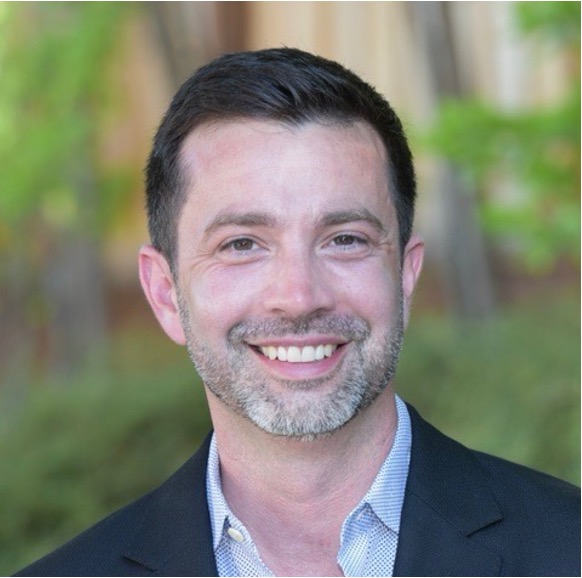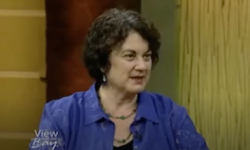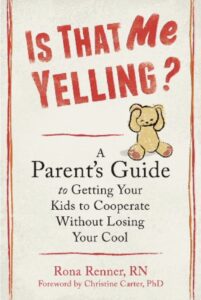 “Is That Me Yelling? A parents guide to getting your kids to cooperate without losing your cool” was published in 2013 and is available in 5 different languages. It’s a best seller in China, but here in the US you can only get it now on Kindle until the next edition.
“Is That Me Yelling? A parents guide to getting your kids to cooperate without losing your cool” was published in 2013 and is available in 5 different languages. It’s a best seller in China, but here in the US you can only get it now on Kindle until the next edition.
If you would like to set up a presentation or training for your child’s preschool or your workplace, you can contact me at .
Is That Me Yelling? is:
“Engaging and practical, humorous and evidence-based, prescriptive but not preachy, authoritative yet never stuffy, Is That Me Yelling? quickly rises to the top of the many parenting books I’ve ever read. Rona Renner provides thoughtful and achievable solutions. If you’re a parent who has ever yelled at your kid and wished you hadn’t, this book is for you.”
—Stephen P. Hinshaw, PhD, professor in the department of psychology at the University of California, Berkeley; and vice-chair of psychology at the University of California, S.F.
“Is That Me Yelling? is a complete and compassionate companion for every parent and educator. With excellent examples from her extensive professional and personal experience, nurse Rona illustrates fundamental psychological principles and functional parenting practices with empathy and enthusiasm.”
—Marisol Muñoz-Kiehne, PhD, clinical psychologist, parent educator, radio host, and author.
American Madness
Listen here to About Health 5/27/24 KPFA.org—94.1FM https://kpfa.org/player/?audio=423094
Our mental health care system is broken, and has been for a long time. There aren’t enough psychiatric hospital beds, or psychiatrists, or therapists, or safe out patient facilities, or good follow up care, or housing, or retraining programs for people with mental illness who are leaving prison. Care often isn’t coordinated, and so many mentally ill people wind up on the streets or in prison. There are about 113,000 people in California at any time who are homeless, and about 25% of the homeless adults studied in Los Angeles County suffer from a severe mental illness.
Please be aware that severe mental illness and suicide will be mentioned during this show, so if that might be triggering for you, you may want to skip this episode. For anyone who is needing help, please know that you can call the Suicide and Crisis Lifeline at 988. It’s available 24 hours a day, and it’s free and confidential support for people in distress–that’s 988.
Guest:
Alice Feller is a clinical psychiatrist with a subspecialty in the treatment of substance use disorder. Many of her patients suffer from severe mental illness, and often live on the streets or behind bars. She has worked in hospital emergency rooms, psychiatric wards, outpatient clinics, chemical dependency treatment programs and in private practice. Her approach includes psychotherapy tailored to the needs of the patient and medication where appropriate. She has taught classes on the treatment of substance use disorder and consulted to the California Medical Board on physicians impaired by chemical dependence. She served two terms on the Berkeley Homeless Commission. For the past two years she has been a member of FASMI (Family Advocates for Severe Mental Illness), an advocacy group campaigning for changes in the law and better mental health care. Her recently published book is “American Madness” Fighting for Patients in a broken mental health system. She lives in Berkeley with her husband and daughter.
The Future Of Artificial Intelligence In Healthcare
https://archives.kpfa.org/data/20240429-Mon1400.mp3
KPFA radio 94.1FM 4/29/24
We will discuss the transformative power of generative AI and how patients and doctors might be able to reclaim control of American medicine with improved patient outcomes and healthcare that is more accessible and affordable.
Will hospitals and staff be ready for this “medical miracle?” And are patients ready to trust something they don’t understand and that hasn’t been tested enough?
Call in at 1-800-958-9008 with your questions, concerns, and curiosity about the future of medical care with AI, doctors, and other health professionals, collaborating with you for better health.
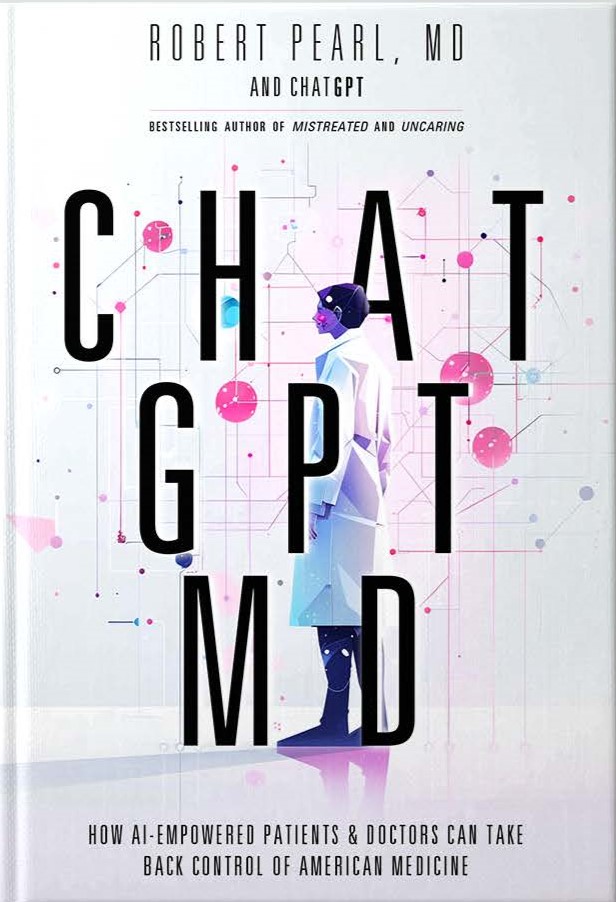
Guest: ROBERT PEARL, M.D.
Dr. Robert Pearl was the CEO of The Permanente Medical Group (Kaiser Permanente) from 1999-2017. In this role he led 12,000 physicians, 42,000 staff, and was responsible for the nationally recognized medical care of over 5 million Kaiser Permanente members on the west and east coasts. His newest book, “ChatGPT, MD: How AI-Empowered Patients & Doctors Can Take Back Control of American Medicine” debuted as #1 on Amazon’s “New Best Seller” list. All profits from the book go to Doctors Without Borders. He is also the author of “Mistreated: Why We think We’re Getting Good Healthcare—And Why We’re Usually Wrong,” and “Uncaring: How the Culture of Medicine Kills Doctors and Patients,” published May 2021.
Pearl, named one of Modern Healthcare’s 50 most influential physician leaders, serves as a clinical professor of plastic surgery at Stanford University School of Medicine and is on the faculty of the Stanford Graduate School of Business.
He hosts the popular podcasts Fixing Healthcare and Medicine: The Truth, publishes a newsletter called Monthly Musings on American Healthcare, and is a regular contributor to Forbes.
Dr. Pearl received his medical degree from the Yale University School of Medicine and completed his residency at Stanford University. Connect with Dr. Robert Pearl on Twitter @RobertPearlMD, LinkedIn and at his website robertpearlmd.com.

Helping a loved one die
Climate Mental Health
About Health on KPFA.org 94.1FM 3/11/24
According to a survey conducted by the Yale Program on Climate Change Communication and the George Mason University Center for Climate Change Communication, one in 10 Americans reports experiencing anxiety because of global warming. We will discuss why we need to talk about Climate and Mental Health and how to talk to young people about climate emotions.
Listen now!
https://kpfa.org/player/?audio=417050
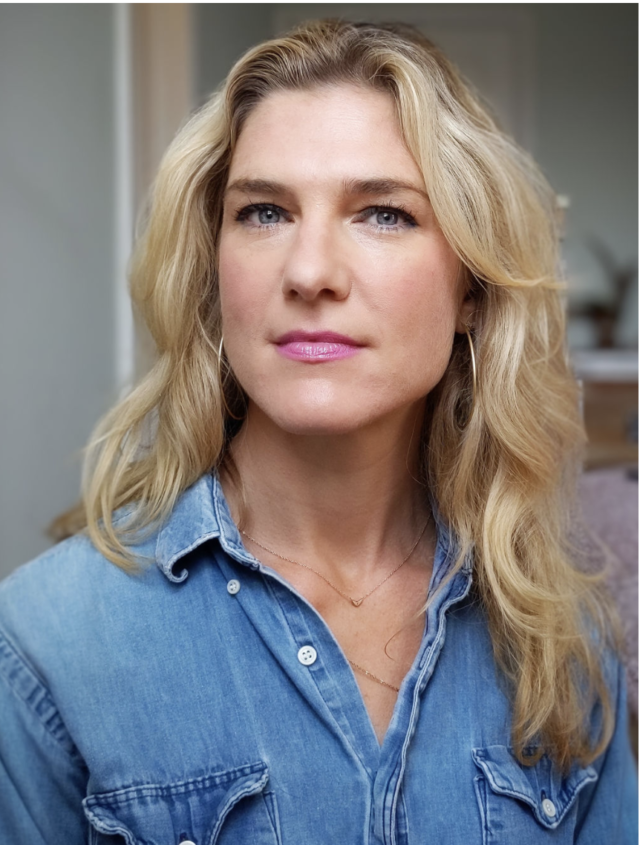
GUESTS:
Anya Kamenetz speaks, writes, and thinks about generational justice; about thriving, and raising thriving kids, on a changing planet. Her newsletter on these topics is The Golden Hour.
She covered education for many years including for NPR, where she co-created the podcast Life Kit: Parenting. Her newest book is The Stolen Year: How Covid Changed Children’s Lives, And Where We Go Now. Kamenetz is currently an advisor to the Aspen Institute and the Climate Mental Health Network, working on new initiatives at the intersection of children and climate change. Anya grew up in Baton Rouge and New Orleans, Louisiana, in a family of writers and mystics, and graduated from Yale University.
Matt Renner is Vice President of Seneca Environmental, where leads strategic development for Seneca Environmental with the goal of creating unprecedented collaboration to accelerate climate action. Previously he worked as a nonprofit executive in clean energy policy, climate organizing, and journalism for over a decade, focusing on the near-term social and economic impacts of climate change.
Matt began his career as an investigative reporter and later became the Executive Director of the World Business Academy to focus on the future of business in a climate-constrained world. He has a BA in Political Science and Government from the University of California, Berkeley.
